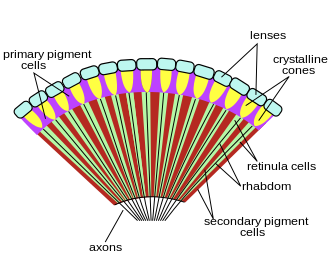They seem to have been creationist hypotheses.
That's important to understand. And to give you credit, most creationists won't admit that. As Darwin said, if evolution were not true, we would see nice, neatly definable species. But we see all sorts of in-between cases, that make it impossible to produce a definition of "species" that applies in all instances. This is a constant embarrassment for creationism, which cannot explain these cases. But as you know, it's perfectly understandable in terms of evolutions.
No, that's wrong. As you know, Luria and Delbruck got their Nobels for demonstrating that. The paper you cited says that some bacteria respond to stress by increasing mutation rates. What it doesn't say is that the resulting mutions are not random. They are. Here's what you didn't understand in your citation:
Because most mutations are detrimental, organisms have evolved mechanisms to keep their mutation rates as low as possible [1]. However, during adverse conditions, increasing genetic variation within a population could allow some members to achieve a phenotype that allows them to survive and proliferate. A transient increase in mutation rate would be particularly advantageous because then survivors would not continue to be burdened with a high mutation rate.
Notice, this increases the rate of mutations, but they are still random. In a stressful environment, an increased mutation rate is desirable, because it increases the likelihood that a favorable mutation will appear.
Sometimes knowing about genetics is helpful if you want to discuss genetics.
By increasing the number of mutations, not by making them non-random. Barry Hall showed how this happened in a culture of bacteria, tracking mutations as they happened. They were random, but of course natural selection means the process of adaptation is not random.
You're confusing mutations with natural selection.
Yep. As you now see, mutations are random. Natural selection is not. Biology 101.
Actually, it's not. There are differences in different organisms. Because it's so important in living things, the DNA coding is remarkably constant. But not perfectly so. And as you would expect, these sort out according to evolutionary phylogenies:
Proc Jpn Acad Ser B Phys Biol Sci. 2008;84(2):58-74.
Evolving genetic code.
Ohama T1, Inagaki Y, Bessho Y, Osawa S.
Abstract
In 1985, we reported that a bacterium, Mycoplasma capricolum, used a deviant genetic code, namely UGA, a "universal" stop codon, was read as tryptophan. This finding, together with the deviant nuclear genetic codes in not a few organisms and a number of mitochondria, shows that the genetic code is not universal, and is in a state of evolution. To account for the changes in codon meanings, we proposed the codon capture theory stating that all the code changes are non-disruptive without accompanied changes of amino acid sequences of proteins. Supporting evidence for the theory is presented in this review. A possible evolutionary process from the ancient to the present-day genetic code is also discussed.
As you just learn, the code does evolve, albeit very slowly. Whether there's only one workable genetic code, or this was the only one that survived, is unknown.
RNA viruses.
Some organisms that are quite simple, even have more code than we do. I don't see a point. Complexity of genome is not complexity of phenotype. And often evolution leads to simpler structures, not more complex. Mammalian lower jaws, ribs, and shoulders are simpler than those of reptiles, for example.
(Barbarian notes that simpler trilobite eyes are much less functional than mammalian eyes)
It merely means they are less effective at controlling light and focusing. They lack focusing, which came much later. Here's a diagram of a trilobite eye:
And a much more complex mammalian eye:
Notice the mammalian eye includes the ability to focus (flexible lens, moved by a ring of fine muscles to control radius of the lens surface) an adjustible iris to control the amount of light entering the eye, and a moveable eyball, controlled by seven muscles that allow you to move your gaze without moving your head.
Vertebrate eyes, like ours, produce an image. Compound eyes, like those of trilobites don't form an image, but a sort of mosaic that is poor on detail, but good for detecting motion. This makes stationary objects less noticable to arthropods. Bees, for example, tend to miss flowers that are stationary, and find flowers that are moving in the wind. Because of the rounded surface of the arthropod eye, the peripheral omnitidia have low resolution.
So you see, the much more complex vertebrate eye is critical to organisms needed to see things very close and very far, with good resolution. The simpler trilobite eye does quite well for its purpose, but lacks many functions in more complex eyes.
Arthropods that are apt to be active in dim light (e.g., crayfish, praying mantis) concentrate the screening pigments of their ommatidia into the lower ends of the pigment cells. This shift enables light entering a single ommatidium at an angle to pass into adjacent ommatidia and stimulate them also. With many ommatidia responding to a single area in the visual field, the image becomes coarser. The praying mantis probably can do little more than distinguish light and dark in the evening.
The arthropod (e.g., insects, crustaceans) eye is built quite differently from the vertebrate eye (and mollusk eye). Arthropod eyes are called compound eyes because they are made up of repeating …

bio.libretexts.org
Show us that the proteins in trilobites are more complex than in mammals. What do you have?
No. Insect eyes arise from ectoderm, while vertebrate eyes are derived from brain tissue, mesoderm, and endoderm.
Clusters of homeotic genes sculpt the morphology of animal body plans and body parts. Different body patterns may evolve through changes in homeotic gene number, regulation or function. Recent evidence suggests that homeotic gene clusters were duplicated early in vertebrate evolution, but the generation of arthropod and tetrapod diversity has largely involved regulatory changes in the expression of conserved arrays of homeotic genes and the evolution of interactions between homeotic proteins and the genes they regulate.
Request PDF | Homeotic genes and the evolution of arthropods and chordates | Clusters of homeotic genes sculpt the morphology of animal body plans and body parts. Different body patterns may evolve through changes in... | Find, read and cite all the research you need on ResearchGate

www.researchgate.net
Because light variation wasn't as important to organisms not forming images with their eyes.








